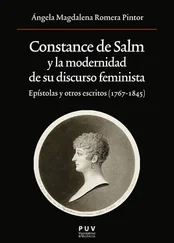Magdalena Tulli - Flaw
Здесь есть возможность читать онлайн «Magdalena Tulli - Flaw» весь текст электронной книги совершенно бесплатно (целиком полную версию без сокращений). В некоторых случаях можно слушать аудио, скачать через торрент в формате fb2 и присутствует краткое содержание. Год выпуска: 2007, Издательство: Archipelago Books, Жанр: Современная проза, на английском языке. Описание произведения, (предисловие) а так же отзывы посетителей доступны на портале библиотеки ЛибКат.
- Название:Flaw
- Автор:
- Издательство:Archipelago Books
- Жанр:
- Год:2007
- ISBN:нет данных
- Рейтинг книги:5 / 5. Голосов: 1
-
Избранное:Добавить в избранное
- Отзывы:
-
Ваша оценка:
- 100
- 1
- 2
- 3
- 4
- 5
Flaw: краткое содержание, описание и аннотация
Предлагаем к чтению аннотацию, описание, краткое содержание или предисловие (зависит от того, что написал сам автор книги «Flaw»). Если вы не нашли необходимую информацию о книге — напишите в комментариях, мы постараемся отыскать её.
Flaw — читать онлайн бесплатно полную книгу (весь текст) целиком
Ниже представлен текст книги, разбитый по страницам. Система сохранения места последней прочитанной страницы, позволяет с удобством читать онлайн бесплатно книгу «Flaw», без необходимости каждый раз заново искать на чём Вы остановились. Поставьте закладку, и сможете в любой момент перейти на страницу, на которой закончили чтение.
Интервал:
Закладка:
Even if the memory of a good life in peaceful times was still fresh in the minds of the refugees, that life was over, and now others were making the decisions in matters that concerned them, driving them from place to place, with their luggage or, if need be, without. But when the luggage was finally gathered in one place, and the refugees in another, and it seemed certain that in just another moment the worst chaos would be under control, and order reinstated — suddenly, out of nowhere, the streetcar returned, crammed with new refugees exhausted from the crush, half-suffocated, barely alive. There were newlyweds fresh from their wedding, the confetti still in their hair, he in black, she in white; the smiles had not yet entirely faded from their lips, yet in their eyes there was already consternation. So they held one another firmly by the hand, just in case circumstance conspired to separate them. There was a woman with a large bouquet of roses in her arms; the flowers were still striking, though they had gotten a little squashed. The bouquet is heavy, so as if out of habit she looks round for someone who up till now she could always hand them over to — perhaps a chauffeur. But here there is no chauffeur and no automobile. No one knows how she ended up in the streetcar, nor who pushed her in there. Her white fur stands out conspicuously against the background of dark overcoats; if someone had been waiting for her, they would have spotted her at once.
But no one is waiting and no one even stares at her, neither the members of the order guard nor the policeman. She’s already hidden behind other new arrivals — thin ones, fat ones, each less attractive than the last. What about her, the beautiful woman in the fur? Perhaps she too would eventually reveal some defect of appearance? Yes, indeed. Puffy eyes, a tear-streaked face, and running mascara. No doubt she would wish to call her agent and have him extricate her from all this without delay. But where is there a telephone? Perhaps in the café across the way? The guards block her path: she is not allowed to cross over there, and besides, the café is closed. Since this is the case, the woman in the fur coat mentions the notary, giving his name and address. Winking at one another, they promise to inform the notary of her presence. It’s not hard to predict that they will do nothing for her whatsoever, yet she expects help, since it is beyond her comprehension that her voice and her looks could have lost their charm. Even if they were well-intentioned, the two guards would do no more than ask the policeman for his opinion. If they were not afraid to bother him with trivial matters. Because from the very beginning the policeman made a show of ignoring the order guard. He was immune to the lofty atmosphere surrounding it. He avoided the guardsmen; he was not interested in collaborating with them, and instead of carrying out the commander’s instructions he preferred to give orders himself, though even that he did reluctantly. Left to rely on their own judgment, the guards knew only that the crowd was not allowed to spread out. One exception would immediately lead to another. They had this principle from their commander in his tall boots, and lacking anything else they could cling to, whether experience or their own opinions, they had to follow it blindly.
It was hard to maintain order with nothing but one’s raised voice and bare hands. Several of them had grown hoarse at once. A directive was issued announcing the confiscation of all walking sticks, and sure enough all canes, including the white one, were deposited in the place indicated; subsequently, in the hands of the guards the canes became an instrument for control. These batons were almost as good as the one lost in the early morning by the commander, which had been exhaustively searched for but not found. In the situation the guards found themselves in, it was necessary time and again to swing their cane at someone, to give themselves confidence, which is never in sufficient supply. Looking around for their leader, the guardsmen suddenly noticed they were alone. The commander had vanished at some unknown moment, for some unknown purpose. He had disappeared without a word to anyone, and they could only hope that he was not far away, given how little space there was anyway. His subordinates could see that now orderliness depended entirely on their diligence — that is to say, the blows of their batons — and so things will remain, let’s say, for the next half an hour. Till the commander, intoxicated with power and success, will come running down the kitchen steps of the building at the back of the courtyard at number seven, hurriedly fastening the military belt over his jacket.
No one knew when the airmen had woken up in the hotel. Their job involved inspecting air force bases, and after particularly enjoyable banquets they would sometimes wake in completely unknown places. Wrenched from sleep, for a while they had stared in stupefaction at the anonymous walls of the hotel room papered in a striped pattern that meant nothing to them. For a long time they twisted and turned in bed in their crumpled undergarments, trying to recall how they came to be here, but their memory had retained only the round zero on the roof of the streetcar they had stepped down from at dawn. So they cocked their ears and listened intently, not understanding a thing. They looked out the window and could not believe what they saw. Afterwards, they had probably shaved in the utmost haste, cursing as they nicked their skin and passing one another a stick of alum. Astonished that there was no one to order breakfast from, they drank what was left of the coffee in their own thermos flasks, and by a side table near the deserted reception desk they thumbed briefly through old newspapers whose rustling explained little to them. The adjutant’s portable short-wave radio refused to work; from that moment it remained utterly silent even when the general attempted to tune it. They found the front door locked shut. The staff had evidently fled to their homes. In order to leave, the airmen had to combine forces to break down the door.
Soon afterwards they turned up in the local government offices, in uniforms buttoned up tight. They passed through a series of empty rooms till they reached the office of the director on the highest floor. The window there had opened of its own accord, and the lace curtain was fluttering outside like a white flag hung out as a sign of surrender. It could also be seen from the square, alone amid so many other flags dazzling the eyes with the bright national colors. A gust of wind had blown some documents off the desk and onto the floor. The officers stepped on them unceremoniously, as though they were waste-paper; they stood around the black telephone and took turns shouting into the receiver, trying to reach the headquarters of an airfield that only they knew. Amid the dry crackling on the line, they finally heard a distant, barely audible voice that promised to send a helicopter for them. It would come after lunch, they repeated to one another, not worrying for a minute about whether it would find the place. It was questionable whether they had properly understood everything, and whether the promise made by the unknown speaker would be kept. It was enough to look out the window at the sky to realize that meteorological conditions were unfavorable. The helicopter would have to make its way through a vast covering of snow clouds, a dense and unbroken mass whose dirty white coloring would have prevented the pilot from seeing not just the network of geographic coordinates, but also the sequence of dates on the calendar.
The airmen settled themselves in armchairs and on sofas. They began to wait for who knows what, dislodged from the routine of their daily affairs and just as lost as the refugees on the square below. They yawned, stretched, brushed the office dust off their uniforms. They killed time in accordance with their rank: the general drummed his fingers on the desktop; the major whistled as he paced from wall to wall, his hands thrust into his pockets; the captain took out some marbles, and the lieutenant began making paper airplanes out of official documents and launching them from the open window, till his fingers got caught in the window frame, at which point he cursed and quit what he was doing. In spite of everything the airmen were better off than the refugees, if only because they were not dressed in dark padded overcoats, like the crumpled rank and file of the distant catastrophe, but on the contrary in well-made officers’ uniforms at the sight of which, at dawn that day, the policeman’s hand had of its own accord snapped to the shining peak of his cap. Elegance engendered respect. In a natural manner it guaranteed lightness and unlimited freedom for the airmen’s bodies, which consequently were, as always, prepared to rise effortlessly into space, let alone walk up an ordinary staircase to some floor of a local government building. The destiny of the accursed padded overcoats, on the other hand, was to descend from the steps of the streetcar ever lower, and to settle amid the smell of mothballs, which also drifted close to the ground, being heavier than clean air, while the closed circle of the tracks marked their implacable boundary. The overcoats had rapidly turned into a bedraggled, shapeless, padded sign of foreignness, a ballast that weighed on the shoulders only so that the crowd of new arrivals should once and for all sink to the cobbled floor of the square, as if they had drowned.
Читать дальшеИнтервал:
Закладка:
Похожие книги на «Flaw»
Представляем Вашему вниманию похожие книги на «Flaw» списком для выбора. Мы отобрали схожую по названию и смыслу литературу в надежде предоставить читателям больше вариантов отыскать новые, интересные, ещё непрочитанные произведения.
Обсуждение, отзывы о книге «Flaw» и просто собственные мнения читателей. Оставьте ваши комментарии, напишите, что Вы думаете о произведении, его смысле или главных героях. Укажите что конкретно понравилось, а что нет, и почему Вы так считаете.












